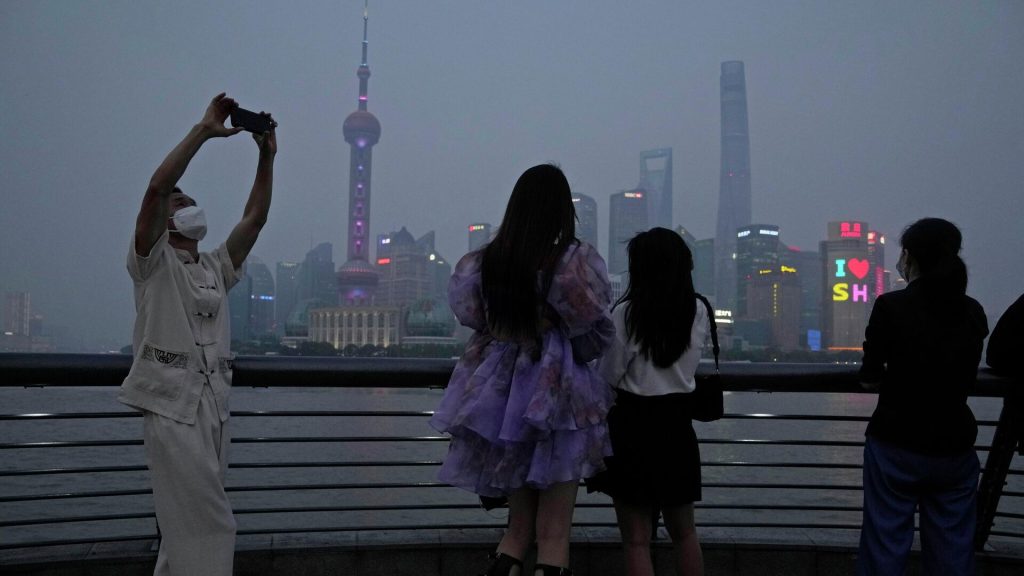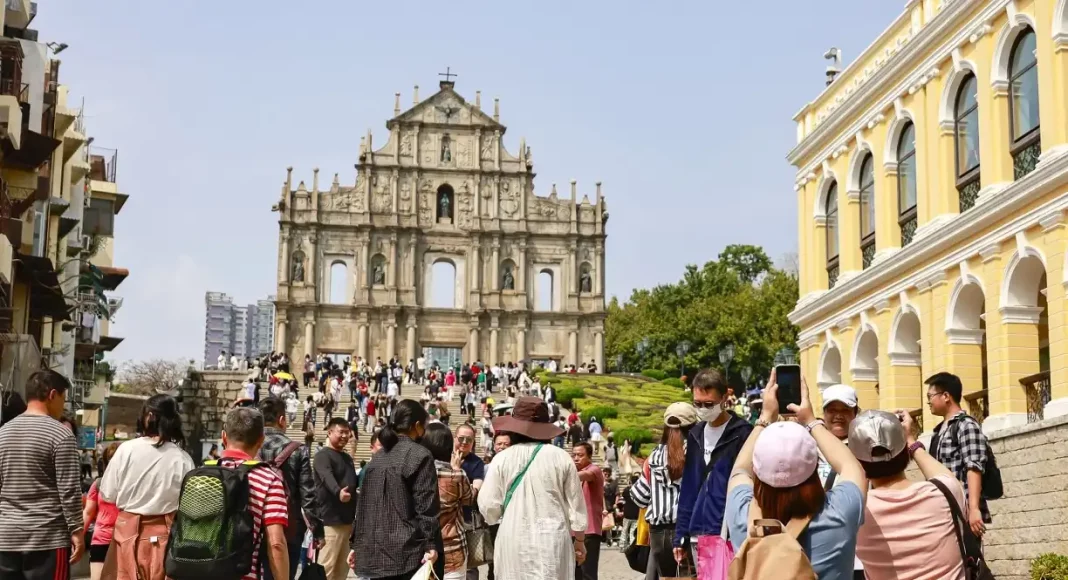Despite a 292 percent surge in the total amount of visitor spending in Macau last year compared to 2022, per-capita spending of visitors on shopping fell sharply by 42.3 percent from the previous year, showing the downturn in China’s economy, say experts.

Speaking to AGB, Carlos Siu, a gaming scholar from the Center for Gaming and Tourism Studies at Macao Polytechnic University, said, “China’s property market downturn and the collapse of the stock market have affected the consumption behavior of visitors, leading to their conservative spending and emphasis on greater value for their money.”
Meanwhile, China has been making significant efforts to improve the economy. Apart from various measures to boost the housing market, China has been active in attracting overseas investment and improving its exports.
According to Macau’s Visitor Expenditure Survey for 2023, per-capita spending of visitors was MOP2,525 ($313) in 2023, up by 55.3 percent compared to 2019. Yet, the figure showed a year-on-year decrease of 20.8 percent, which was “due to a relatively high base of comparison in 2022 that resulted from mainland visitors shopping in Macau during the quarantine-free travel arrangement between Macau and mainland China, as well as their demand for mid-to-high-end consumer products.”
Per-capita spending of overnight visitors (MOP4,230) and same-day visitors (MOP791) fell by 29.6 percent and 21.7 percent year-on-year, respectively, in 2023.
Macau only removed COVID-related travel restrictions in January last year, initiating Macau’s recovery.
Carlos Siu opines that per capita bottoming out depends on “whether the general public feels optimistic about the future as a result of national policies.”
Macau luxury market poses challenges

Jose Wong, a scholar from Macau University of Science and Technology (MUST), told AGB that more time is needed to observe consumption trends in Macau. In 2022, people were limited in their travel options, making Macau almost the only choice for this kind of consumption, so luxury sales benefited.
At the same time, due to the limited frequency of traveling during the pandemic, tourists could only shop within a very limited time frame, which contributed to one-time consumption of high value.
Wong, the Assistant Dean of the Faculty of Hospitality and Tourism Management at MUST, notes that it’s worth comparing the figures of 2023 and 2024 because the data collected during COVID is not normalized.
In his observation, Macau’s retail market, especially luxury retail, faces a series of challenges, including mainland China’s economic woes and regional competitors.
He mentions that Singapore and China have had a mutual visa-free policy since last month, making them good destinations for luxury goods shoppers.
“If Macau wants to further upgrade its offerings, instead of adding more shops, maybe local companies can think of creating some items that offer good entertainment experiences,” he notes.
“If there are some consumers who seek specific products in Macau, they will be more price-sensitive. If Macau can offer a good travel experience where price and experience are the unique offerings, it will not be easily affected by their competitors.”
Due to currency policy, the Macau Pataca and the Hong Kong Dollar – the primary currency for gambling, are at very high levels compared to the Chinese Renminbi. In this context, the strong currency makes Macau’s offerings more expensive compared to pre-COVID levels even if the price of goods doesn’t increase.
Regarding the woes of the Chinese economy, the scholar considers that factor has already been reflected in the second half of the 2023 numbers.
On the positive side, Macau is located close to its main source market, mainland China, so some budget travelers may choose Macau as a vacation destination since transportation costs will not be very high.
On the negative side, the scholar says that visitors are not spending the same amount of money as they did in the past.

China’s economy still fragile
Ratings agency Fitch maintains a negative outlook on China’s economy.
According to the latest credit brief by the group regarding February 2024, it points out that travel and consumption during the Chinese New Year (CNY) holiday week highlight a demand shift towards service-oriented sectors.
‘For example, a surge in tourists to Macau reinforces Fitch Ratings’ expectation of a recovery in Macau’s gaming sector this year. This will help the rated casino operators reduce their leverage.’
‘Some bright spots in some consumer sectors have driven a few positive rating actions among corporates in recent months, but the overall economic environment remains challenging, and the proportion of ratings on Negative Outlook or Rating Watch Negative still outweighs their positive equivalents.’











